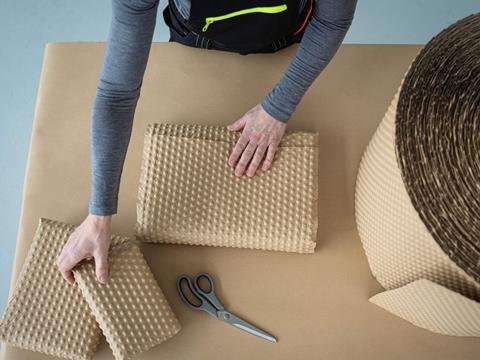
Startup Papair has announced its partnership with Harbour Investment Holding to scale the production of its paper bubble wrap, PapairWrap, and drive the development of further packaging solutions.
Papair has been producing PapairWrap at its site in Rethem an der Aller/Lower Saxony in Germany since August 2023. The company has developed its own technology and production facility for manufacturing, and the packaging material is currently being produced at a pilot plant.
The investment by Harbour Investment Holding will support Papair’s expansion efforts, including production capacity, promoting research and development initiatives and the expansion of its European and international market presence.
Papair says the collaboration will leverage synergies in production and distribution to accelerate the transition to ‘sustainable’ packaging solutions, providing added value to customers while reducing environmental impact.
“By leveraging Harbour Investment’s expertise and resources, we are equipped to accelerate the development and deployment of PapairWrap while simultaneously exploring untapped markets and distribution channels,” says Christopher Feist, CEO & co-founder of Papair.
He adds: “This partnership not only signals our shared commitment to driving positive change but also underscores our dedication to creating a sustainable future for generations to come.”
Papair was a finalist in our Sustainability Awards last year with its PapairWrap, apparently made from 100% recycled paper. The company said its manufacturing process allows it to have two paper webs together without using synthetics or adhesives, meaning the wrap can be returned to the existing recycling system.
In similar news, Fourniture Industrie Service (FIS) recently produced bubble wrap made of recycled kraft paper, in a bid to meet demand for sustainability-minded packaging without compromising on product protection. The paper alternative consists of two layers of recycled kraft paper filled with air bubbles, claiming to optimize shock absorption and protect delicate items in transit and storage.
If you liked this story, you might also enjoy:
Report: The ultimate guide to global plastic sustainability regulation
The Brief: Oxo-(bio)degradables: the who, what, and why of breaking down fossil-based plastics
Sustainable Packaging Summit: How Kraft-Heinz uses collaboration to drive innovation
The Brief: Using ocean-bound plastic in packaging – how, why and should we?













No comments yet